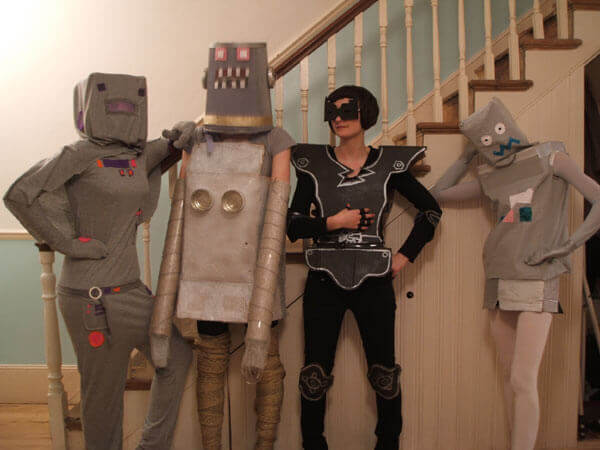Digisexuals: Will This New Term Combat Prejudice Against People with Tech-based Sexual Identities?
When desires are intertwined with technology.

Last month, Neil McArthur and Markie Twist authored a paper in the journal Sexual and Relationship Therapy called “The rise of digisexuality: therapeutic challenges and possibilities.”
Digisexuals, according to McArthur and Twist, are “people whose primary sexual identity comes through the use of technology.”
Speaking to Broadly, Neil McArthur—who is an associate professor of philosophy at the University of Manitoba—added that “In the coming years, sexual technology will become more sophisticated, immersive, and appealing. Many people will find that their experiences with this technology become integral to their sexual identity, and some will come to prefer them to direct sexual interactions with humans.”
Stigmas and therapy
Beyond coining the term “Digisexuals,” the point of their paper is that clinicians should be prepared to address and work with patients who are sexually aroused through or directly by technology.

Speaking again to Broadly, McArthur said there is a very real possibility that being a “Digisexual” could lead to prejudice and ostracization from society: “we realized that digisexuals are going to emerge as a real community, and they are going to face resistance from the start.”
McArthur added, “We felt like maybe we could play an important role in getting out in front of that resistance, to make people recognize the similarities between this and other marginalized identities.”
This was echoed by Markie Twist, an Associate Professor at the University of Wisconsin-Stout: “Discussing and researching digisexualities right now brings up more questions than answers … this is why further discussion, research, and dialogue.”
Loving the artificial
For those who have been following recent developments in sexual technologies, like frequent readers of Future of Sex, people who enjoy sexual pleasure associated with tech is growing more common.
We have already seen those who prefer the company of sexbots, like Davecat and his gynoid partner, Sidore Kuroneko, receive no small amount of uncomfortable publicity if not outright scorn.
Still, it is refreshing to see a thoughtful, and best of all caring, call to recognize sexual arousal with and through technology as a legitimate orientation.
The origin of ‘digisexual’
Speaking to Future of Sex, McArthur explained that while the term “technosexual” has been around for some time to describe people turned on by tech, they wanted to form a new word:
“We felt we were discussing something very distinctive and novel—people who specifically form their identity around a specific kind of sexual experience, which is to say the sort that involves immersive technologies and does not depend on the presence or even existence of another person.”
At the forefront of their coining of digisexual is a genuine concern for those with these new desires. “We felt that by naming their identity we could provide them with validation,” McArthur added.

Names have power
In response to concerns that they were basically naming a group of people without their permission, McArthur said:
“We didn’t feel we were imposing the term on a group of people for a couple of reasons. First of all, there was no competing term being used, so we didn’t feel like we were trying to overwrite anybody’s process of self-naming. Nor were there any representatives or groups who we could have consulted.”
So rather than it continuing to be a marginalized, and unseen, lifestyle, McArthur and Twist decided it would be best to create digisexuality, explaining that “invisibility is a big potential contributor to the stigma.”
While it may not be a perfect, McArthur and Twist worked to make digisexuality “…a very neutral, descriptive term, that doesn’t have any pejorative connotations built into it. Indeed, we tried very hard in our definition to emphasize that we do not think digisexuals were in any way abnormal or dysfunctional.”
Will digisexuality remain?
Even if digisexual falls by the wayside, to be replaced by a new word chosen by the community itself, what McArthur and Twist have recognized that having a name, any name, can still be empowering.
This is especially true for people who have undergone or will undergo, social stigma for their sexual preferences.
We are who we are
Here’s hoping that McArthur and Twist’s call to recognize the validity of being technologically aroused allows more and more people come out.
And that they will wear the label of digisexual, or something of their own devising, without shame or fear—and, best of all, pride.
Image sources: Tigist Sapphire, dodeckahedron, Mona Eberhardt
Leave a reply
You must be logged in to post a comment.

















